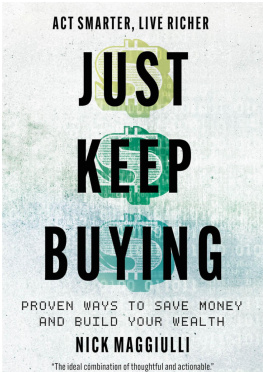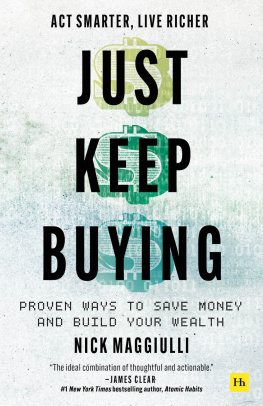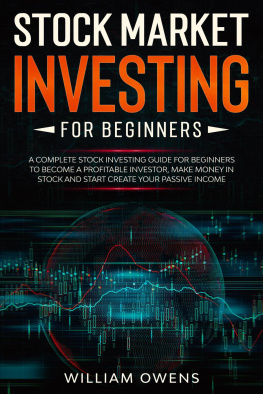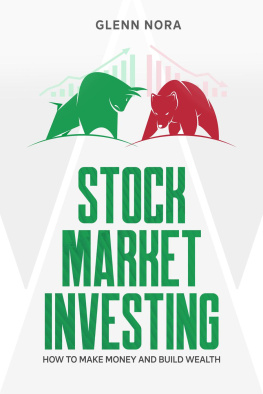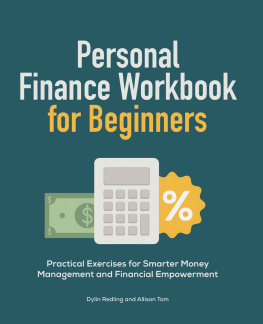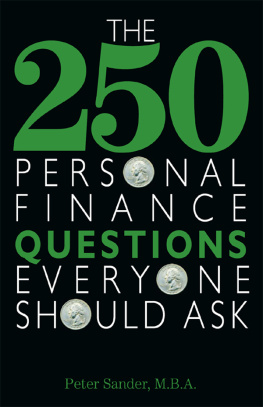Just Keep Buying
Proven ways to save money and build your wealth
Nick Maggiulli
Contents
Praise for Just Keep Buying
Just Keep Buying is the ideal combination of thoughtful and actionable. Maggiulli not only uses evidence to guide his suggestions, but he is also among the best at boiling everything down into ideas that are easy to understand and apply.
James Clear, #1 New York Times bestselling author, Atomic Habits
The first time I read Nick Maggiulli's writing I knew he had a special talent. There are lots of good data scientists, and lots of good storytellers. But few understand the data and can tell a compelling story about it like Nick. This is a must-read.
Morgan Housel, bestselling author, The Psychology of Money
Nick Maggiulli clearly delights in flouting the received wisdom about how people should manage their money. The end result is a book thats full of both aha moments and practical takeaways. As a fellow writer about personal finance, I felt a creeping sense of jealousy in what I was reading. Nick takes the tired topics of how to save and invest well and managed to make them utterly fresh and even quite a bit of fun.
Christine Benz, Director of Personal Finance, Morningstar
Nick has a genuine giftwhile he uses rigorous empirical evidence to make his case, he manages to tell the story in such a way to keep the readers attention and give them practical, actionable advice. He also has just enough of a mischievous streak to challenge some long-held assumptions about investing, but in a manner that makes the empirical data a fresh, interesting story. Investors, new and old, will benefit from Nicks practical approach to investing.
James OShaughnessy, Founder and Chairman, OSAM LLC; bestselling author, What Works on Wall Street
How to use this book
I
have written this
book in a way to optimize the use of your time. While you are free to read it in order, you may find it more useful to jump around to the chapter that best fits where you currently are in your wealth-building journey.
The book is divided into two sectionssaving and investing. Saving will cover all the aspects of saving money including: how much to save, how to save more, how to spend money guilt-free, and so forth. Investing will cover the many facets of putting your money to work including: why you should invest, what you should invest in, how often you should invest, and much more.
I wrote the book in this way so that you could quickly find the information you need and put it to use. If you dont need help saving money, then skip that chapter. Trust me, I wont mind. Id rather you find something valuable than stop reading altogether.
Lastly, for those who want a quick summary of the books key ideas and practical takeaways, you can find this at the end of the book in the conclusion.
Introduction
M
y late grandfather
was addicted to gambling on horse races. When I was a kid we used to go to the Los Angeles County Fair and watch thoroughbreds with names like Magnificent Marks and Jail Break gallop around the track. What I saw then as a form of mild entertainment I later learned was a lifelong struggle for my grandfather.
His addiction started with horse racing but eventually progressed to card games. Blackjack. Baccarat. Pai Gow. You name it, he had played it. I had never heard of some of these games, but my grandfather knew them well. And he bet like it too. $25 a hand. $50 a hand. Sometimes $75 a hand. Sizeable sums of money to throw away on gambling at cards.
You have to understand that my grandfather was retired and living with his mother (my great-grandmother) at the time. She paid for his food and housing. When he initially retired at age 55, he started getting $1,000 a month from his pension. Seven years later, he began receiving Social Security for an additional $1,200 a month.
However, despite having $2,200 a month in income and almost no costs, he died in May 2019 with no assets to his name. Throughout his 26-year retirement, he gambled it all away.
But what if my grandfather had taken just half of his monthly retirement income (money he was going to gamble away anyways) and invested it in the U.S. stock market? What would have happened then?
He would have died a millionaire.
He would have been able to gamble throughout his retirement with half his money, and still build wealth because of the growth of the other half invested in stocks.
This is true even though a sizeable chunk of his investments would have been made during one of the worst decades in U.S. stock market history (20002009). That wouldnt have mattered. By continually investing his money month after month, my grandfather could have counteracted his worst financial habits and built wealth. And though you probably dont have a severe gambling addiction, by following this philosophy, you can build wealth as well.
A few years before my grandfathers passing, I stumbled upon this idea almost by chance. An idea that consists of only three words. An idea that could make you rich.
Just. Keep. Buying.
This is the mantra that changed my life.
Growing up, I had no concept of wealth or how to build it. I didnt know that the word summer could be used as a verb (I summer in the Hamptons). I didnt know what dividends were. Heck, most of my life I thought Sizzler and Red Lobster were high-end restaurants.
And though my parents were hard workers, both dropped out of college and never learned about investing. As a result, I didnt either. In fact, it wasnt until I went to college that I truly understood what a stock was.
However, learning about investing wasnt enough to solve my financial problems. Because, despite getting a great education, my financial life after college was fraught with uncertainty and stress. I questioned nearly every financial decision I made.
What should I invest in?
Am I saving enough?
Should I buy now or wait it out?
My neuroticism around money followed me into my mid-20s. I was now supposed to be a full adult, embarking on my career, and in control of my life. Yet, I couldnt quiet that little voice in the back of my head. My uncertainty around money haunted me.
So I started reading everything I could get my hands on about money and investing. I trolled online forums, read every Berkshire Hathaway letter to shareholders, and dug through the footnotes of obscure books on financial history. This helped, but I still felt unsure about what to do next.
Then, in early 2017, I decided to start blogging about personal finance and investing. I was going to force myself to figure this stuff out.
Shortly thereafter, I saw a YouTube video from Casey Neistat that changed everything.
The video, titled 3 words that got me to 3 MILLION SUBS, discussed how Neistat grew his channel to three million subscribers using three words of advice given to him by fellow YouTuber Roman AtwoodJust. Keep. Uploading. Though Neistat was talking about how to build a YouTube following, I immediately saw the connection to investing and building wealth.
In the weeks prior to seeing that video, I had been doing some analysis on the U.S. stock market when I discovered something profound. To build wealth it didnt matter when you bought U.S. stocks, just that you bought them and kept buying them. It didnt matter if valuations were high or low. It didnt matter if you were in a bull market or a bear market. All that mattered was that you kept buying.
Next page
